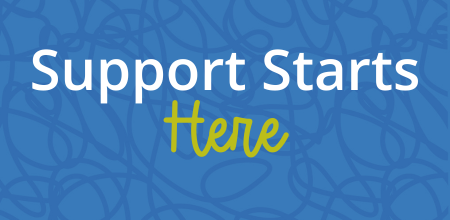Returning to Work After Brain Injury
Categories: Living with Brain Injury
By Margaret Koch, Director of Vocational Services, Hope Network Neuro Rehabilitation
Work is such an important part of our lives — it gives us meaning and purpose. Having a job that we do well allows us to feel competent and successful. Work is a good place to meet people and make friends. Earning a paycheck also helps us meet our needs and support our families.
But a brain injury can throw a big wrench into the picture. You may experience challenges with memory and attention, making it hard to manage the various stimuli in the environment. You might have physical challenges and your social skills may be affected. Things that used to be easy may now be more difficult. You might wonder what’s to come or have other questions and concerns. For example, you may ask: Will I be able to do the things I did before my injury? Will I be able to go back to work? Will I need to find a different job? Who will help me with my return to work journey?
No wonder it can be difficult to figure out how to get back to work! Fortunately, there are resources to point you in the right direction and help you meet your goals of returning to work after a brain injury, whether that means building skills, returning to a previous job, or finding a new job.

Vocational Rehabilitation: Where to Begin?
Vocational rehabilitation (VR) programs can be helpful to you and your family as you begin the process of returning to the workforce. These programs can help you determine where you are, where you want to go, and how to get there. This might include services such as:
- Vocational evaluations
- Situational assessments
- Work adjustment services
- Interest testing
- Vocational counseling
- Job analysis
- Identifying job accommodations
VR programs help you get back to work. If you were working before your injury, it is best to start thinking about VR sooner rather than later. As you consider your options, it is also helpful to talk to your social worker, case manager, and doctor about returning to work. Here are some other tips to get you started:
Know Your Rights
The Americans with Disabilities Act (ADA) was signed into law to make American society accessible to everyone, including people with brain injuries. Title I of the ADA deals with employment and requires companies with 15 or more employees to provide reasonable accommodations to applicants and employees with disabilities. The law also prohibits discrimination on the basis of disability in all aspects of employment. For more information about the ADA and reasonable accommodations, visit the Job Accommodation Network website or visit the U.S. Department of LaborAmericans with Disabilities Act.
Contact Human Resources
The human resources department at your employer will be able to help you determine if you qualify for any benefits, such as short- or long- term disability insurance. If you have worked for your employer for at least one year, you may also qualify for the Family Medical Leave Act (FMLA), which protects your job for up to 12 weeks while you are recovering. FMLA may also be available to your family members if they need to take a leave of absence to care for you. When you are ready to return to work, you should talk to your employer about allowing you to come back with accommodations to help you with your transition.
How to Pay for Vocational Rehabilitation
Unfortunately, private health insurance benefits do not cover vocational rehabilitation; however, there are other options available.
- If you were injured at work, you are entitled to Workers’ Compensation insurance, which provides wage replacement and medical benefits (benefits vary from state to state).
- If you were injured in a motor-vehicle accident, you may be entitled to medical and rehabilitation benefits through your automobile insurance. Some states have Auto No-Fault Insurance for treatment that is reasonable and necessary, including brain injury rehabilitation. For more information, contact your insurance company.
- If neither of those options are available to you, contact the VR agency in your state. These programs provide vocational and rehabilitative services to individuals with disabilities to help them prepare for, obtain, regain, or maintain employment. To find the VR agency in your state, click here.
What if I’m not ready to go back to work right now?
Even if you aren’t ready to go back to work yet, you can take other steps to become prepared. First, contact your human resources department to find out your benefit status. Next, make sure that your family, employer, doctor, and rehabilitation team know that you want to go back to work. Participate in vocational assessment and counseling and in vocational rehabilitation to identify your current strengths and challenges.
Going back to work, whether it’s the job you did before or a different one that matches your new strengths, is a major goal for many people with brain injury. Thinking about returning to employment early on can help you and your family develop a plan that will help you to be successful.
Margaret Koch, B.A., is a Certified Brain Injury Specialist (CBIS) with more than 35 years of vocational rehabilitation experience. She has been the leader of the Grand Rapids Chapter of the BIA of Michigan for more than 20 years.
This article originally appeared in Volume 11, Issue 4 of THE Challenge! published in 2017.

